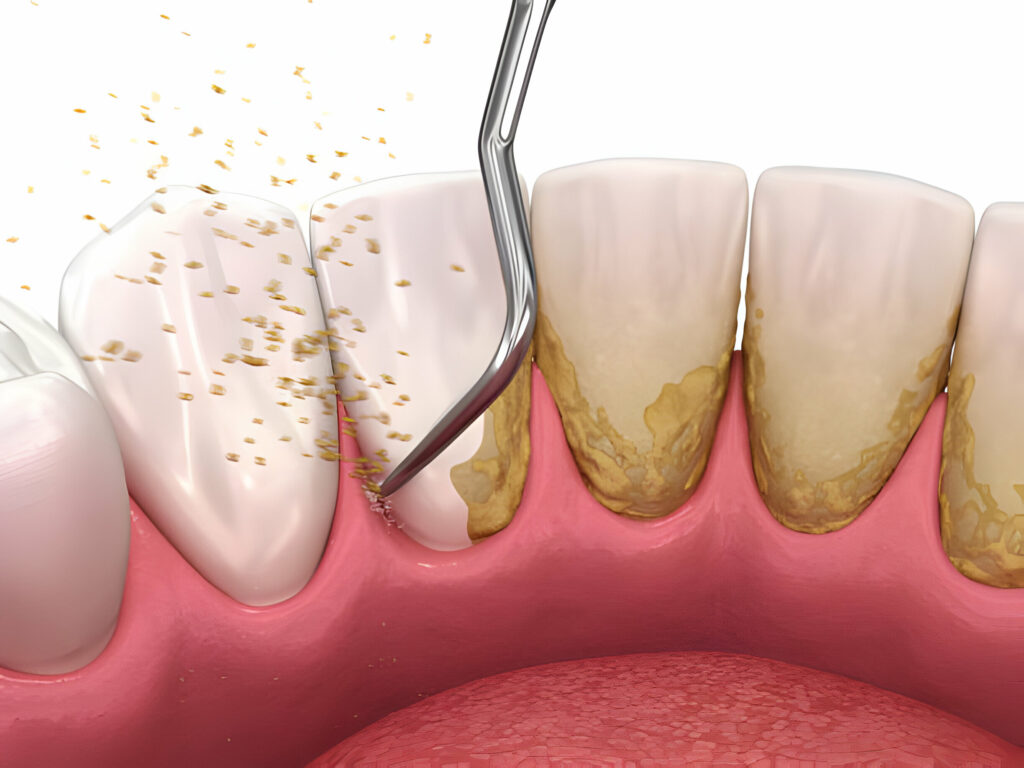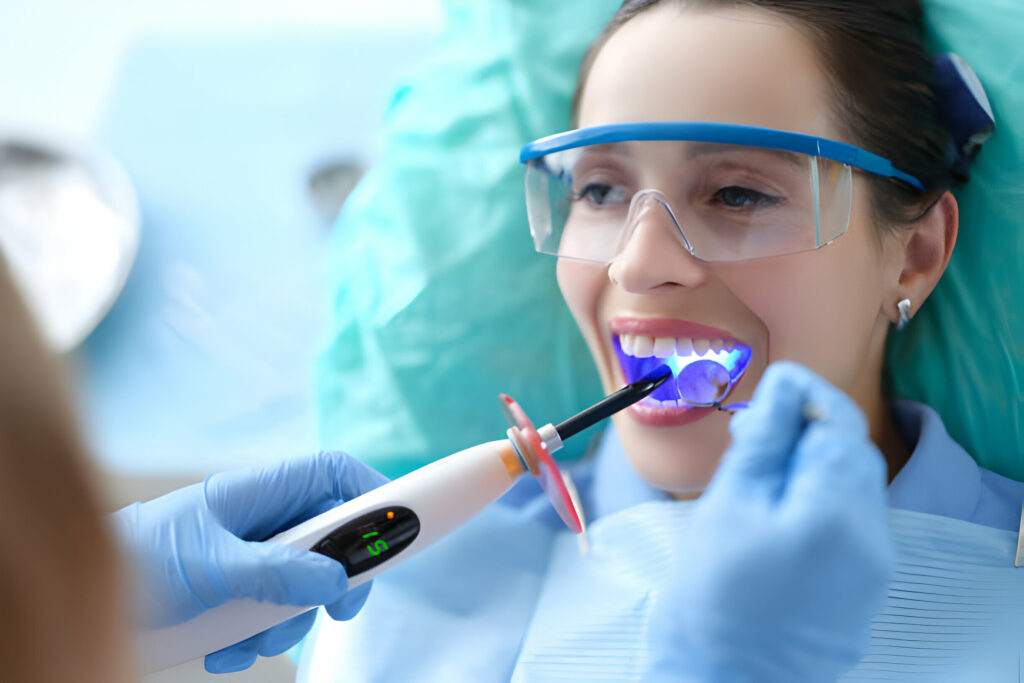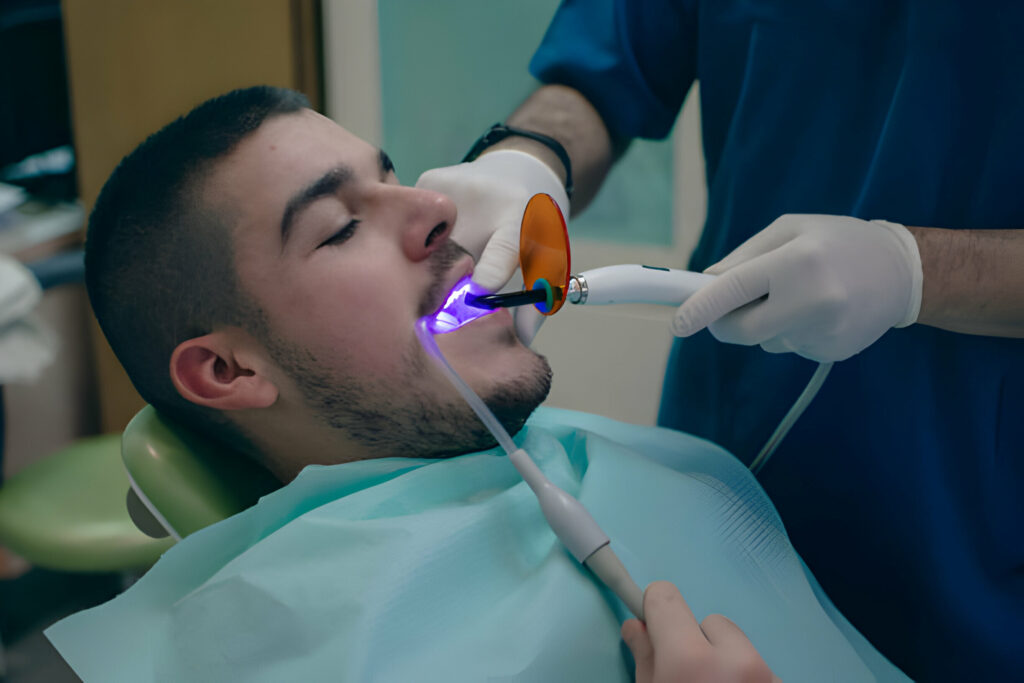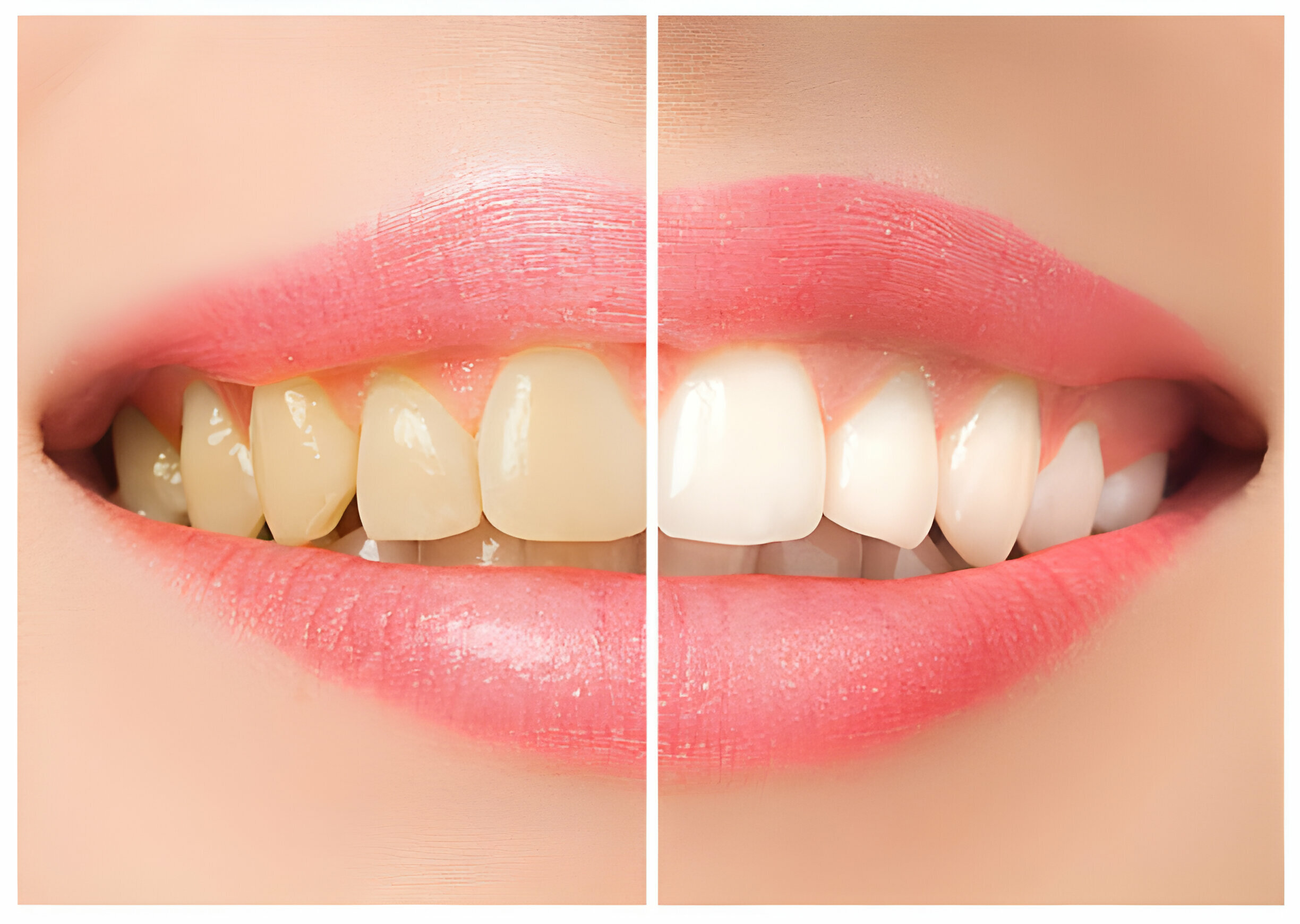Summary:
Are you tired of looking in the mirror only to see yellow, stained teeth staring back at you?
As much as you might not like it, stained or yellow teeth result from your lifestyle. Frequent consumption of red wine, coffee, and other staining food items or beverages tends to impact the appearance of your teeth.
But what if you could lighten your smile again? Sounds interesting, right?
It’s true! You can now enhance your smile with professional teeth whitening. The procedure focuses on cleansing the teeth and giving them a shiny white appearance.

Sadly, the lack of information on the procedure has led to several myths, confusions, and diverse perceptions. Therefore, in this blog, we tend to guide you through the procedure with the right info via topics like:
- What is the Teeth Whitening Treatment About?
- Top 7 Myths & Facts About Teeth Whitening
- How Long Does Professional Teeth Whitening Last?
Continue reading as we learn more about the treatment and its associated myths and facts in the following sections.
What is the Teeth Whitening Treatment About?
Teeth whitening is a cosmetic dentistry technique that improves the appearance of teeth by eliminating stains and discolorations. In only one consultation, you may significantly enhance your smile and in turn, your confidence.
However, before you learn more about the treatment, it’s essential to understand the primary reasons behind your teeth turning yellow. Let’s learn more about this in the following section.
Primary Reasons Why Teeth Turn Yellow
Teeth ideally turn yellow for two primary reasons, they are:
Enamel thinning
The exterior covering of teeth is made of enamel, which is almost white and protects the deeper tooth components. Dentin is a yellow-brown tissue layer that lies beneath the enamel.
When the enamel covering thins or wears away, the dentin increases, making teeth appear darker. Acidic diets, gum disease, and aging can all erode tooth enamel. Some people’s enamel is naturally thinner.
Stains
Certain foods and beverages like tea, coffee, and red wine can discolor teeth. Additionally, some foods that discolor teeth may wear away the enamel, causing significant staining or yellowing.
Other sources of stains can include tobacco use and certain drugs.
Top 7 Myths & Facts About Teeth Whitening
1. Teeth whitening weakens the tooth enamel
Myth:
The dentist may use a whitening gel containing a bleaching chemical during teeth whitening. Once the gel is activated, a laser is used to activate it.
The dentist repeats the procedure several times to get the desired results. This procedure may create sensitivity, but it is not an abrasion of the tooth enamel, and the sensitivity will gradually disappear after a few days.
Fact:
Teeth whitening techniques work best when performed by professional Hutchinson KS dentists, so avoid using unsupervised bleaching kits. Such kits may harm your gums and teeth. They contain harsh chemicals that can erode tooth enamel, resulting in tooth sensitivity.
2. Whitening toothpaste is just as effective
Myth:
Hundreds of consumer products on the market promise rapid tooth whitening solutions. These whitening toothpastes promise to be as effective as a complete teeth whitening procedure at the dentist’s office.
Fact:
Whitening toothpaste is useless since it is washed away within minutes. The natural teeth whitening method is based on chemicals that must be in touch with the teeth for a lengthy period. It also accompanies the use of specialist cleaning procedures like lasers. As a result, having your teeth cleaned by a professional always guarantees superior outcomes.
3. Coconut oil whitens teeth
Myth:
Coconut oil might help whiten teeth. These claims are based on swishing oil around in the mouth, a practice known as “oil pulling.” This procedure dates back hundreds of years; however, the outcomes are somewhat doubtful.
Fact:
No scientific proof exists that coconut oil whitens teeth, and other peer-reviewed scientific articles refute this dubious notion. That’s why no dentist will urge you to attempt oil pulling.

4. Charcoal toothpaste whitens teeth
Myth:
Charcoal toothpaste is the most recent dental trend that guarantees whiter teeth. However, no scientific proof supports its efficacy, so don’t believe the claims blindly.
Fact:
Contrary to common perception, there is evidence that charcoal-based toothpaste can cause enamel deterioration. This results in long-term discomfort and no teeth-whitening advantages.
5. Strawberries and lemons can whiten teeth
Myth:
Another common fallacy is that mashed strawberries and lemon juice can whiten teeth. The acidic nature of lemons is thought to help destroy dangerous germs and remove tooth stains.
Fact:
Strawberries and lemons are acidic, and repeated usage will eventually erode the enamel rather than whiten the teeth. The sugar content of these fruits also causes difficulties for your tooth health by promoting bacterial development.
6. Baking soda and hydrogen peroxide can whiten teeth
Myth:
Baking soda and hydrogen peroxide are widely used to clean teeth because they are thought to remove stains. These chemicals are frequently blended and swished in the mouth to clean the enamel.
Fact:
Baking soda alters the balance of healthy and harmful bacteria in the oral cavity, causing bacterial proliferation and deteriorating dental hygiene if not addressed on time. Hydrogen peroxide produces free radicals, harming the sensitive tissues around the gums. Therefore, it should not be used as a whitening agent.
7. Professional teeth whitening services aren’t worth the cost
Myth:
Professional teeth whitening procedures are frequently associated with high costs since some insurance companies consider the service a cosmetic operation. As a result, many patients choose to avoid the surgery, further exposing their teeth to harm.
Fact:
Teeth whitening is surprisingly inexpensive when performed by a dental expert. This leads to safer and more pleasant outcomes and improved long-term oral health.
How Long Does Professional Teeth Whitening Last?
Regardless of the teeth whitening procedure used, the results are temporary. Home-based products can have outcomes ranging from minor to large, but they usually only last a few months. Professional dental treatments can extend the results for up to three years.

Ways to Prolong the Results
Quit using tobacco products to extend the effectiveness of your teeth whitening procedure and boost your confidence. Smoking creates yellow and brown stains on teeth; thus, quitting increases the lifespan of your treatment while also improving your dental and general health.
To prevent stains, avoid coffee, soda, and dark beverages. Drink water or use a straw. Brush and floss at least twice daily to maintain good dental hygiene and prevent plaque accumulation. Use whitening toothpaste on occasion. Get expert cleanings from the dentist for teeth whitening in Hutchinson twice a year to keep your teeth and gums healthy and stain-free.
Takeaway
- Teeth whitening is a cosmetic dentistry technique that improves the appearance of teeth by eliminating stains and discolorations.
- Regardless of the teeth whitening procedure used, the results are temporary.
- As much as you may not like it, stained or yellow teeth result from your lifestyle.
- Quit using tobacco products to extend the effectiveness of your whitening procedure and boost your confidence.
- Enjoy teeth whitening possibilities today with our Grant D. Ringler, DDS experts!

